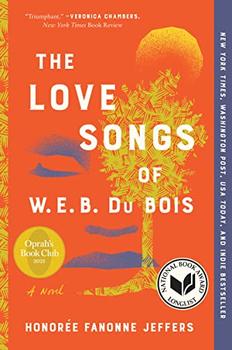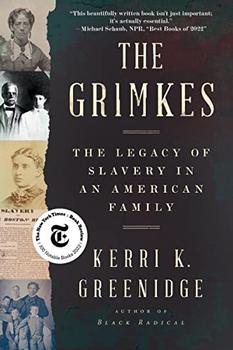Summary | Excerpt | Reading Guide | Reviews | Beyond the book | Read-Alikes | Genres & Themes | Author Bio

The 2020 National Book Award–nominated poet makes her fiction debut with this magisterial epic - an intimate yet sweeping novel with all the luminescence and force of Homegoing; Sing, Unburied, Sing; and The Water Dancer - that chronicles the journey of one American family, from the centuries of the colonial slave trade through the Civil War to our own tumultuous era.
A New York Times Book Everyone Will Be Talking About • A People 5 Best Books of the Summer • A Ms. Most Anticipated Book of the Year • A Goodreads Most Anticipated Book of the Year • A Book Page Writer to Watch • An Essence Book of the Summer
The great scholar, W. E. B. Du Bois, once wrote about the Problem of race in America, and what he called "Double Consciousness," a sensitivity that every African American possesses in order to survive. Since childhood, Ailey Pearl Garfield has understood Du Bois's words all too well. Bearing the names of two formidable Black Americans—the revered choreographer Alvin Ailey and her great grandmother Pearl, the descendant of enslaved Georgians and tenant farmers—Ailey carries Du Bois's Problem on her shoulders.
Ailey is reared in the north in the City but spends summers in the small Georgia town of Chicasetta, where her mother's family has lived since their ancestors arrived from Africa in bondage. From an early age, Ailey fights a battle for belonging that's made all the more difficult by a hovering trauma, as well as the whispers of women—her mother, Belle, her sister, Lydia, and a maternal line reaching back two centuries—that urge Ailey to succeed in their stead.
To come to terms with her own identity, Ailey embarks on a journey through her family's past, uncovering the shocking tales of generations of ancestors—Indigenous, Black, and white—in the deep South. In doing so Ailey must learn to embrace her full heritage, a legacy of oppression and resistance, bondage and independence, cruelty and resilience that is the story—and the song—of America itself.
I'd generally opine that when a work is this massive — over 800 pages — it perhaps would have been stronger had the author concentrated on fewer topics. But although Love Songs is big, sprawling and multi-faceted, there's not a sentence in it I'd have edited out. It's messy in the same way the experiences of most lives are messy — one goes through phases, finds romance, makes bad choices — but combine to form a whole. Jeffers brilliantly reflects these experiences throughout the novel, but her depiction of Ailey's growth in particular is perfect...continued
Full Review
(599 words)
This review is available to non-members for a limited time. For full access,
become a member today.
(Reviewed by Kim Kovacs).
 William Edward Burghardt Du Bois (aka W.E.B. Du Bois) was a noted author, historian, activist and sociologist as well as a co-founder of the National Association for the Advancement of Colored People (NAACP). His philosophies play an important role throughout Honorée Fannone Jeffers' novel The Love Songs of W.E.B. Du Bois; each section of the book begins with a relevant quote from his works, and an elderly family patriarch frequently engages in debates about the man's opinions on how to best confront racism.
William Edward Burghardt Du Bois (aka W.E.B. Du Bois) was a noted author, historian, activist and sociologist as well as a co-founder of the National Association for the Advancement of Colored People (NAACP). His philosophies play an important role throughout Honorée Fannone Jeffers' novel The Love Songs of W.E.B. Du Bois; each section of the book begins with a relevant quote from his works, and an elderly family patriarch frequently engages in debates about the man's opinions on how to best confront racism.
Du Bois (pronounced "doo-BOYS") was born in 1868 in Great Barrington, Massachusetts — just three years after the end of the United States' Civil War. His father, a barber, deserted the family when Du Bois was two years...
This "beyond the book" feature is available to non-members for a limited time. Join today for full access.

If you liked The Love Songs of W.E.B. Du Bois, try these:

by Terah Shelton Harris
Published 2024
An explosive and emotional story of four siblings―each fighting their own personal battle―who return home in the wake of their father's death in order to save their family's home from being sold out from under them, from the author of One Summer in Savannah.

by Kerri K. Greenidge
Published 2024
A stunning counternarrative of the legendary abolitionist Grimke sisters that finally reclaims the forgotten Black members of their family.